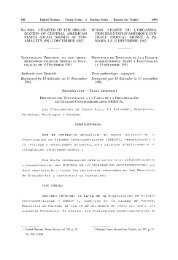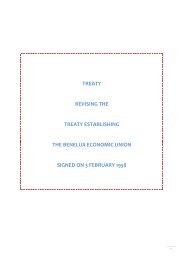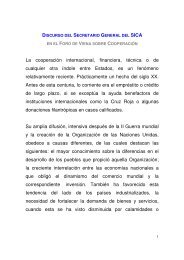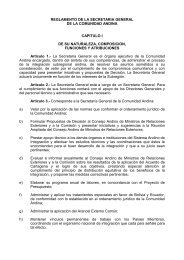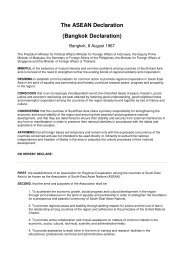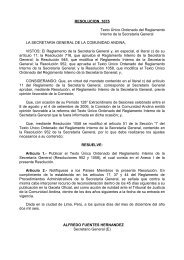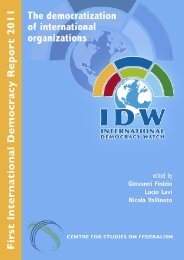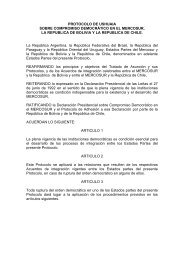Korwa G. Adar - International Democracy Watch
Korwa G. Adar - International Democracy Watch
Korwa G. Adar - International Democracy Watch
You also want an ePaper? Increase the reach of your titles
YUMPU automatically turns print PDFs into web optimized ePapers that Google loves.
East African Community – <strong>Korwa</strong> G. <strong>Adar</strong>Secondly, the electoral procedures of the EALA representatives conducted by the NationalAssemblies of the partner states as prescribed in the treaty, puts into question the legitimacy ofthe representatives and by extension the Assembly itself. There is no Community-wide uniformityin the electoral process. Each member state is empowered to employ its own electoral laws, rulesand regulations when electing the representatives. Article 50 (1) provides:The National Assembly of each partner state shall elect, not from among its members, ninemembers of the Assembly, who shall represent as much as it is feasible, the various politicalparties represented in the National Assembly, shades of opinion, gender and other specialinterest groups in the partner state, in accordance with such procedure as the National Assemblyof each partner state may determine (my emphasis) (EAC Secretariat 2002).This indirect electoral process undermines the principles of popular participation and individualsovereignty. More specifically, it is the electorates who confer sovereign rights on electedrepresentatives who, in turn, make laws on behalf of the electorates. This is the key to liberaldemocracy which, in many respects, is also inscribed in the EAC treaty. The founding fathers ofthe EAC seemed to have been more interested in national representation as opposed to thepeople’s (East African’s) representation. There is, therefore, no clear nexus (or what I have calleda missing link) between the EAC and the people of East Africa (<strong>Adar</strong> 2008a).The view that the EALA should be the link between the Community and the people of EastAfrica was reiterated when one representative observed that “one of the major considerations inestablishing the EALA was because it would create and be a link between the Community and theEast African people” (EAC Secretariat, EALA, 2004: 26). In order to fill this gap, that is the missinglink, the EALA pursues what it calls “taking the Assembly to the people through tours, of thepartner states by the EALA representatives” (<strong>Adar</strong> 2005: 44). Even though the EALArepresentatives acknowledge this anomaly, they have not, to my knowledge, passed any lawdirecting the partner states to introduce direct elections as the most viable and democraticoption. These tours cannot substitute the sovereign rights of the East Africans in participating inpopular elections, one of the foundations for liberal democracy also envisaged in regionalintegration processes, including the EAC (Eze 2004; Salih 2004 and Ssempembwa 2004).Parliaments, the EALA included, derive their mandate and legislative authority from theelectorate to whom they also owe allegiance (Oloo 2005: 84 and Morara 2001: 68). The provisionin the EAC treaty which empowers the political parties and other interest groups, to participate inthe nomination and thereafter election by parliament of the EALA representatives shift allegiance27




